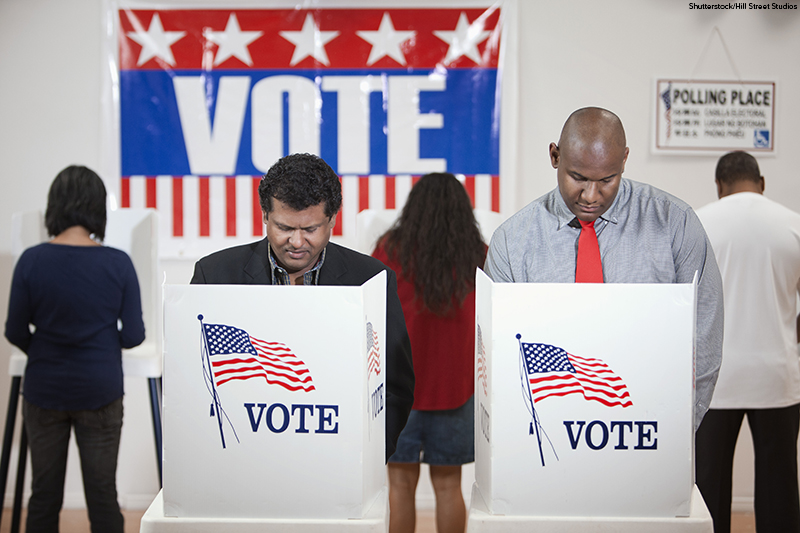
In the United States, members of political parties in each state choose candidates for a general election through caucuses, conventions, or primary elections. Most states choose to hold primaries.
There are two major types of primaries: closed and open. A closed primary is when only the registered members of a political party can vote. For example, only registered Republicans can vote in the Republican primary to select that party’s candidate. In other words, it is closed to all other registered voters. Registered voters who are unaffiliated with a specific political party cannot vote in closed primaries. These voters are known as independents.
In an open primary, all eligible voters may vote, even if they are not registered as a member of the party. For example, an independent can vote in an open primary, but they must ask for either a Republican or Democratic ballot.
States can choose to have open primaries, closed primaries, or even semi-closed or semi-open primaries. Read the arguments below to help you decide if primary elections should be open contests.

YES
- Open primaries allow voters more flexibility to cast a ballot without registering with a political party.
- Closed primaries exclude voters. For example, over half of Generation Z and Millennial voters were not registered with a political party in 2022. They would not be able to vote in a closed primary.
- By restricting the number of people who can vote, closed primaries result in candidates who are less representative of a state’s population.
- Public funds pay for elections, so all voters should be able to participate.
NO
- Independent voters can change their party registration before an election to participate in the primary, making open primaries unnecessary.
- Closed primaries prevent members of an opposing party from interfering in the primary. For example, voters from an opposing party might vote for weaker candidates they think their party’s candidate can beat in the general election.
- Political parties have the right to allow only its members to select candidates.
- Closed primaries are more likely to result in candidates that represent the party platform.
